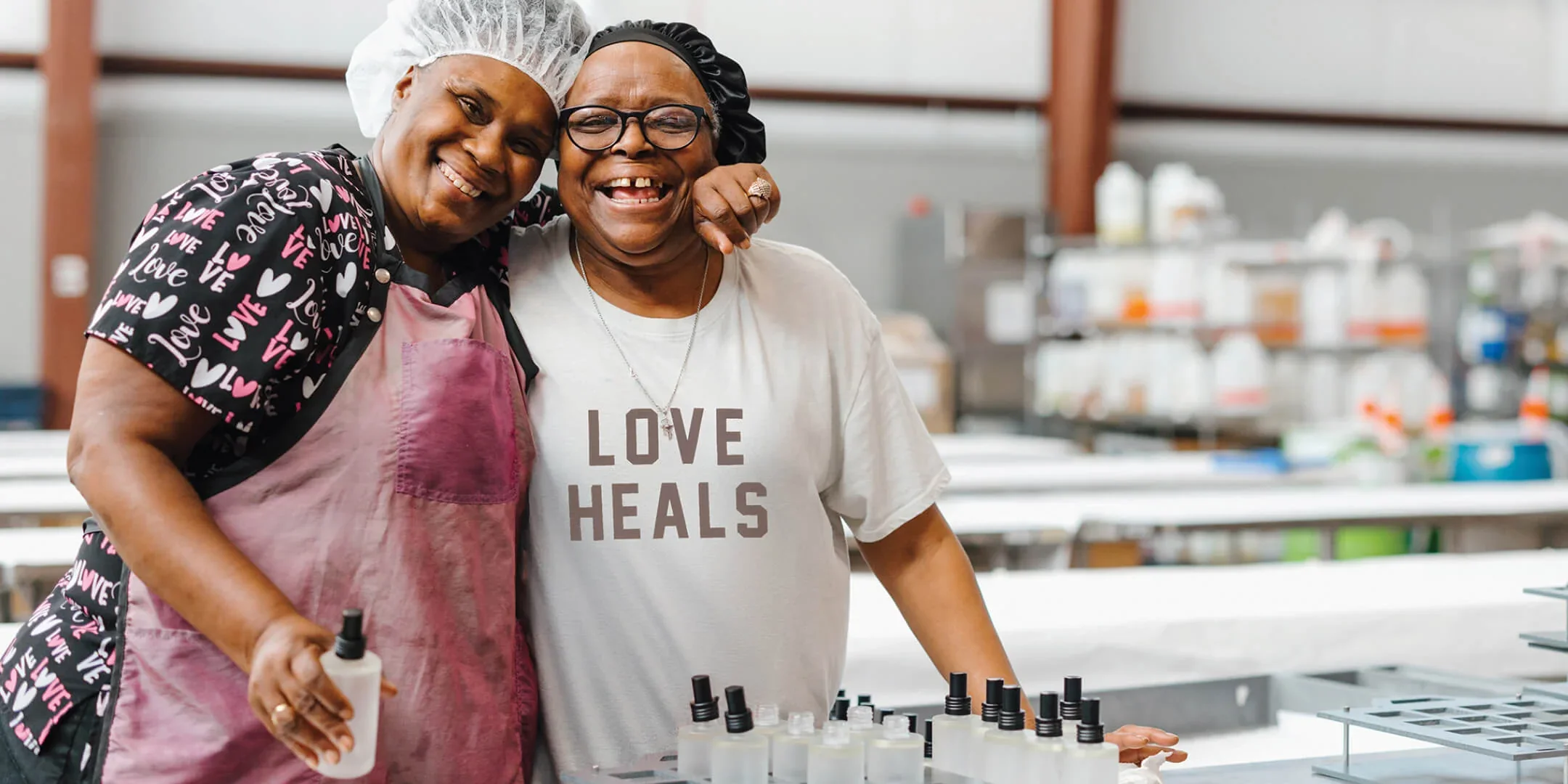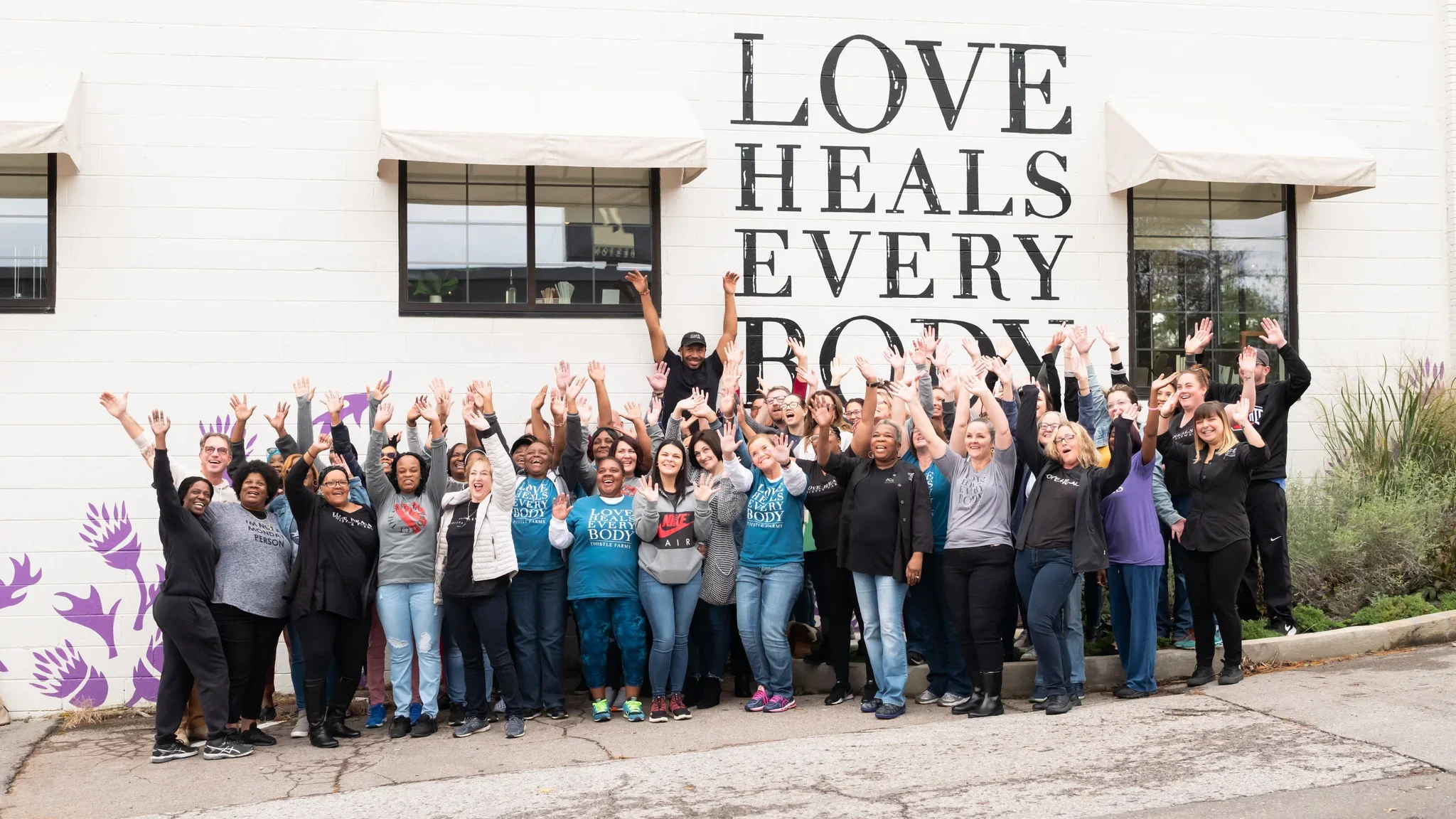Working Models: Thistle Farms
How a Nashville-based justice enterprise is changing how we see and support women survivors.
Thistle Farms is a Nashville-based social enterprise that helps women survivors of trafficking, addiction and incarceration rebuild their lives through a holistic model of housing, healing and employment.
Founded in 1997 by Reverend Becca Stevens, the organization began as a single home for women rebuilding their lives after years on the streets. Today, it’s grown into a nationally recognized model for recovery and community care.
The Work + Mission
Over three decades, Thistle Farms has created a network of graduates who reach back to help new arrivals find stability, purpose and belonging.
They house up to 36 residents at a time in a therapeutic setting that offers healing and transformation through housing, healthcare, counseling, employment, and community building. Housing and clinical services are free of charge and provided without Federal assistance.
Who They Serve
The women entering Thistle Farms’ residential program are survivors of commercial sexual exploitation, often navigating addiction, mental health challenges, incarceration histories and homelessness.
What They Do
Thistle Farms’ work falls within four service pillars: House, Heal, Employ and Respond.
Through House, Thistle Farms offers two years of free housing to women survivors of trafficking, addiction and incarceration. Within those homes, the Heal pillar provides trauma-informed care and psycho-educational classes tailored to each woman’s goals for recovery and rebuilding.
The Employ pillar creates pathways to financial independence through hands-on work in Thistle Farms’ social enterprises, including a manufacturing and shipping facility, a retail shop and The Café at Thistle Farms, as well as through partnerships with their global Shared Trade network.
Finally, the Respond pillar channels 30 years of lived experience into systemic change, expanding the model to reach more women through advocacy, crisis stabilization programs and partnerships with correctional facilities.
Together, these pillars form a self-sustaining ecosystem where business fuels healing, healing informs advocacy and every woman who walks through the door becomes part of a collective story of restoration and resilience.
How They Do It
Thistle Farms’ model runs on shared investment: part philanthropy, part enterprise and part community participation.
The organization’s residential and recovery programs are funded through a blend of donor contributions, foundation grants and earned revenue generated by its social businesses: the retail shop, manufacturing and shipping operations, The Café at Thistle Farms and its Shared Trade network of global partners.
Every purchase made at the café or retail shop—every candle, cup of coffee or handmade balm—directly supports safe housing, trauma-informed counseling and job training for women in the program. Customers become part of the care chain, transforming commerce into a form of community giving.
Thistle Farms also works closely with local service partners and volunteers who provide additional support, from addiction treatment and legal advocacy to financial education and wellness programs.
In turn, this collaborative structure reduces overhead, amplifies impact and ensures that the majority of resources flow directly to the women rebuilding their lives.
Together, these mechanisms create a circular economy of healing, one where business underwrites recovery, and recovery fuels purpose-driven enterprise.
A Community that Reaches Back
At Thistle Farms, the impact isn’t measured in numbers alone: it’s felt in the collective story that keeps the light burning.
For more than three decades, women who have walked through the program continue to reach back and help the next woman take her first step off the streets and into safety.
Volunteers, some serving for over a decade, alongside donors, customers and community partners all play a role in keeping that path illuminated.
Every candle poured, every cup served, every purchase made contributes to that ongoing act of mutual care. It’s how Thistle Farms transforms survival into thriving—not through one woman’s story, but through a network of shared strength.
“Our volunteers and donors help keep the candle lit so that the path out of the darkness is illuminated for when a woman is ready to walk it.”
This feature was published as part of HYVEMIND’s Working Models series: stories from the people and organizations reshaping care, community and system repair.
We’re always looking to highlight organizations, collectives, and community experiments that are changing how care, work and wellbeing are built. If your team is running a program or initiative that others could learn from, we’d love to hear from you.
Add your org to our Community Map or send a note to hello@thehyvemind.com to be featured in an upcoming story.



